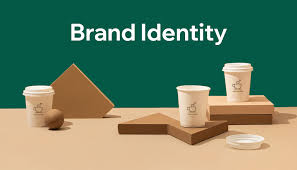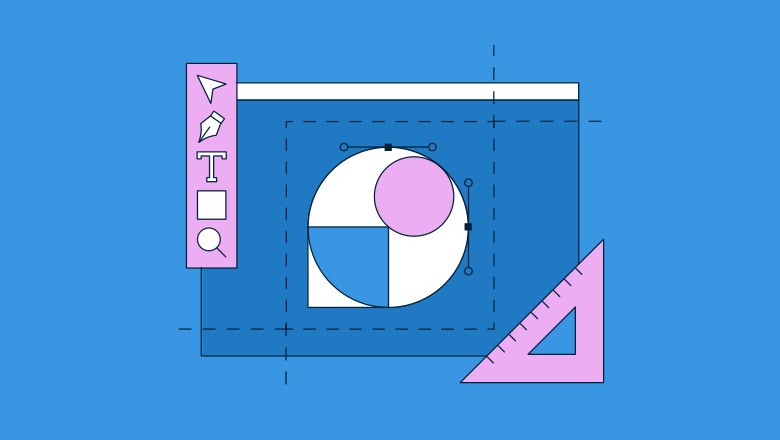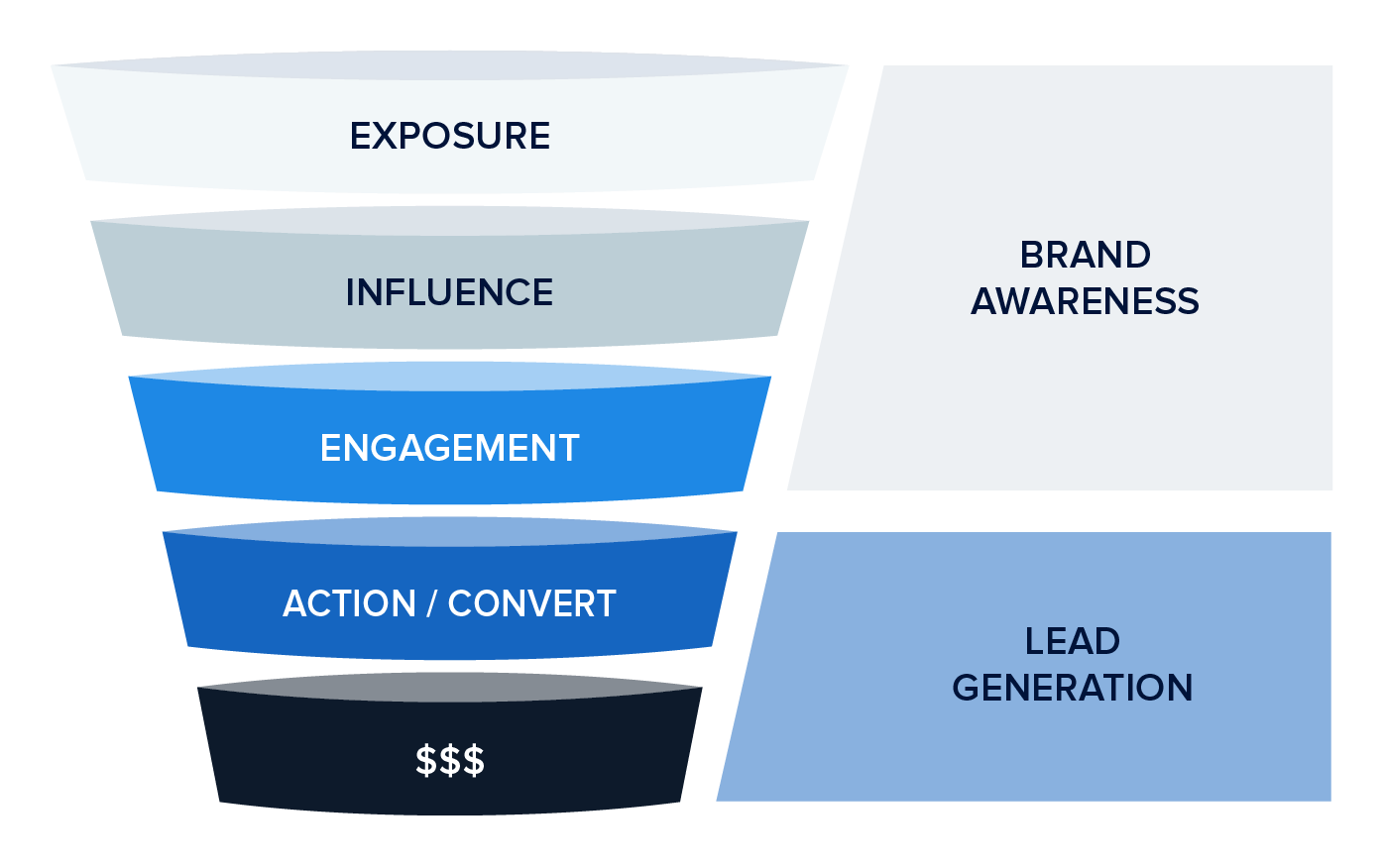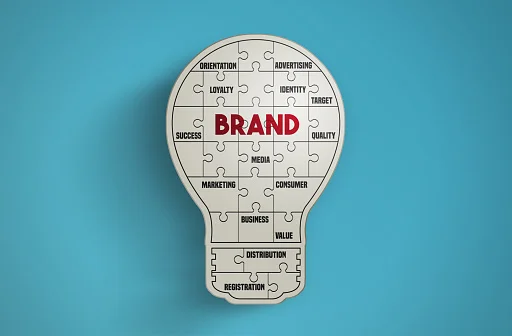Hello!
In this age of social media, when you compete against brands with loyal customers and an unlimited marketing budget, you have to find ways to build a compelling brand identity to communicate with your target customers and form solid relationships for success.
 As per a survey report, 59% of customers prefer to buy products from brands they are familiar with. Even if you own a small business, a powerful brand identity can help you reach a broader customer base and urge them to engage with you.
As per a survey report, 59% of customers prefer to buy products from brands they are familiar with. Even if you own a small business, a powerful brand identity can help you reach a broader customer base and urge them to engage with you.
But how do you build a strong brand identity?
Before we dive into the nitty-gritty of building a brand identity, let's first understand the term "brand" and the meaning of brand identity.
What is a Brand?
According to Jeff Bezos, the founder of Amazon, a brand is what people talk about you when you are not in the room. In other words, a brand is a customer’s perception of a business from various factors– be it a logo, website, advertising or customer service.
What is brand identity?
A brand identity is how you want to present your company to your potential customers, from its trademark to visual appearance, communications and more. Simply put, a brand identity is how it feels, looks, and differentiates you from the rest of the brands in the market.
 The basic elements of a strong brand identity include:
The basic elements of a strong brand identity include:
- Logo
- Design
- Colours
- Images
- Typography
- Illustrations
- Data visualisations
- Video and motion pictures
- Web design
- Business cards
- Packaging
- Email design
Some brands (if not many) fail to connect with people despite creating a brand identity using these elements. Why? It could be because it was unable to interact with people.
You have to create a brand identity that works for everyone.
 While designing a strong brand identity, make sure:
While designing a strong brand identity, make sure:
- It’s distinct from its competitors and eye-catchy.
- It creates a visual impact.
- It’s scalable.
- It is easy to understand and use.
- Its elements compliment your business.
Significance of Brand Identity
• Good brand identity builds trust and familiarity.
If you consider survey reports, you will notice over 59% of customers buy products from brands they trust. Having a distinct brand identity with a clear message can help you attract more customers.
• A clean brand identity sets you apart from competitors.
Every brand identity should demonstrate a unique element that leaves a memorable impression on people's minds and helps them differentiate its competitors.
• An effective brand identity brings customer loyalty.
 You can only become a customer’s favourite if you provide a unique customer experience.
You can only become a customer’s favourite if you provide a unique customer experience.
You may find it surprising, but people would prefer to pay 16% more for a better brand experience.
6 Steps to Creating a Successful Brand Identity
 Whether you are thinking to rebrand or build a new brand identity, you must consider a few mandatory steps to get through the process in a sane mind. So without further ado, let's get to it.
Whether you are thinking to rebrand or build a new brand identity, you must consider a few mandatory steps to get through the process in a sane mind. So without further ado, let's get to it.
Step 1: Define the purpose of your brand.
- Why?
- Why does your brand matter to people?
- Why should they choose you over others?
You cannot hope your potential customers understand the mission statement if you are not clear of the brand's worth. Use these answers to plan out your style guide and brand message.
Pro Tip: While brainstorming, don’t just list out differences with your competitors in your head. Try to note them down and share them with your team to develop a consistent message.
Step 2: Dig deep to learn about your audience.
If you want your brand to click with your customers, you must know them and their interests.
When researching, find answers to:
- Who are your buyers?
- What do they do?
- What are their interests, likes and dislikes?
- Where can you find your target buyers?
- When they buy and how often?
- What’s their purchasing budget?
For new business owners:
Check different survey reports, polls, conversations on social media sites, blogs, and connect with various community groups to gather information.
For old business owners:
 Refer to polls and comment sections on different social media pages and analyse where you are lacking and what they like of other competitors.
Refer to polls and comment sections on different social media pages and analyse where you are lacking and what they like of other competitors.
You can interact with them and ask whether they would recommend your brand, what changes would they prefer to see, or if they are considering some other brand before yours and why.
Step 3: Research on your competitors.
You cannot survive without learning about your competitors. Analyse various reports and feedback to understand why they were able to build strong brand identity or why customers prefer their products. Evaluate every detail available on social media, webinars, different marketing campaigns, and the like.
 Make a note of their:
Make a note of their:
- Tagline, value, and goals
- Marketing channels
- Customer feedback
- Communication medium
- Visual identity
Remember, the goal of researching about your competitors is not to copy their branding and marketing strategies but to take inspiration to deliver better to your customers without compromising on your mission.
Step 4: Find your brand voice.
Now that you've completed your market research, it's time to get creative. Start with your brand voice. Determine whether you want it to be friendly or professional yet humorous. Whatever voice you choose, make sure you are consistent and conversational with your posts – be it your website content or emails.
Your customers shouldn't feel as if a robot is marketing a business. If you want to connect with people, you have to make them feel valued. Also, stick to a specific brand message, so you don't confuse your audience.
Step 5: Develop a unique visual identity.
This is the most crucial part of building a brand identity. From designing the perfect logo to finding the right colour palette, everything plays a vital role in crafting an attention grabbing brand identity.
• Logo:
A logo should clearly state what your brand stands for. It should deliver a quick message cleanly and straightforwardly.
• Colour palette:
Choose a colour that maintains uniformity on all mediums – packaging, website designing or graphics/image designing. Mind you, each colour has a meaning behind it.
 For instance:
For instance:
- Red signifies excitement and passion
- Orange is playful and high-energy
- Blue is stable and trustworthy
- Black is classy or modern
- Pink is luxurious or soft
- Green defines versatility
Choose a colour that accurately blends with your brand mission statement if you want to create a good impact on your potential customers.
• Fonts/typography:
Fonts can leave a lasting impression on your customers. Although there are hundreds of fonts available, the three major types are:
• Serif fonts: Times New Roman or Garamond
• Sans serif fonts: Helvetica or Franklin Gothic
• Script typography: Allura or Pacifico
Choose at least three fonts and try out different formatting styles to develop the best brand font. No matter what font you use, make sure it’s reader-friendly. After all, you don’t want your potential customers to struggle to read your tagline, do you?
• Shape & Size:
We have come across many startup owners who completely ignore this element of designing. The shape and size of your brand logo can reinforce your potential customer’s reactions.
 Let’s say you’ve chosen:
Let’s say you’ve chosen:
- Round shapes like ovals and circles – Creates a feeling of love and unity.
- Straight lines – Vertical lines signifies masculinity, while horizontal lines give a mellow vibe.
- Straight edged shapes like rectangles, squares and triangles – Such forms suggest stability and trustworthiness.
Step 6: Be consistent & monitor your brand identity.
As you've completed the most challenging hurdle of the race, it's now time to bring your vision to life. Use all the elements and create fun but unique designs to voice your brand. If you want to maintain consistency with branding identity, creating a style guide can be helpful.
 The success of a brand identity also largely depends on consistency. Start with a couple of templates to help your team customise according to the design requirements. Follow your style guide so that the designs look the same in your emails as it does on your social media accounts or official website.
The success of a brand identity also largely depends on consistency. Start with a couple of templates to help your team customise according to the design requirements. Follow your style guide so that the designs look the same in your emails as it does on your social media accounts or official website.
Also, remember to monitor your brand identity. Just because you've created a brand identity, it doesn't mean your work is done. Winning your customer's loyalty is a continuous process. You have to keep a tab on the performance metrics to learn what your customers are talking about the brand and make changes accordingly.
Establish a Strong Brand Identity and Propel Your Business
Building a strong brand identity is what helps your customers to notice you in a sea of competitors. It helps them to learn who you are and what you have for them. If you want your brand to stand out and be accepted by a broader mass, you have to create impressive designs that accurately portray your brand and mission. If you have some more branding tips to share, you can share them with me in the comments section below.
Pay attention to the selection of top articles on Quasa Media:
- 6 Technologies To Improve Your Branding
- How to Boost Your Brand Reputation if You Are a Small Business?
- Brand Marketing and Performance Marketing in a Nutshell
- Why Metaverse is Rising: Crypto, NFT, and Big Brands
- 7 Tips for Protecting Your Brand Against Cyberattacks
- 7 Effective Tactics For Humanizing Your Brand (With Examples)
- 5 Ways to Increase Brand Awareness Using NFTs
- How to Successfully Rebrand Your Business
Thank you!
Subscribe to our newsletter! Join us on social networks!
See you!






